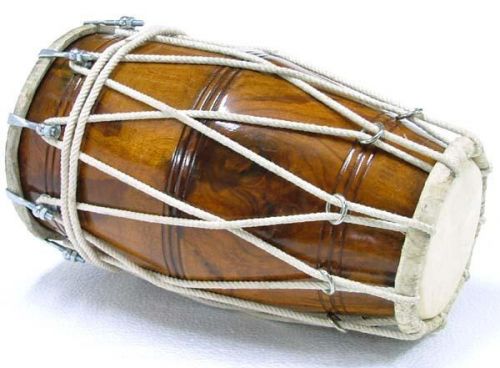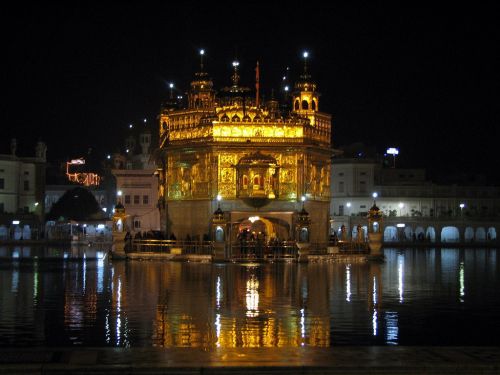Baisakhi
Baisakhi (Vaisakhi, Vasakhi) is an important Indian festival. It is known under several different names. In the Indian state of Kerala the festival is called Vishu. In Assam the locals call it Bohag Bihu. According to Gregorian calendar the festival is held on the 13th of April. Once every 36 years it is organized on the 14th of April. Depending on the religious community, it can be a religious festival, harvest festival or the New Year's Day.
On this day the last Sikh Guru Gobind Singh organized their community into the Khalsa or “pure ones”. This enabled the equality of all Sikh people. Very typical Skih tradition for the Baisakhi is the performance of Bangra music. In its unique way it describes whole process of harvesting. The sound of the dholak (drum) dominates in this type of music.
 Dholak
Dholak
The Sikhs vist temples like for example the Golden Temple (Darbar Sahib) in Amritsar, Punjab. The Holy Granth is read. It is symbolically bathed in milk and water. It is put on a special throne. There is also a parade with five men holding swords. They are walking in front of the book. Big parties follow the parade.
 Golden Temple in Amritsar
Golden Temple in Amritsar
Baisakhi is held at the end of harvest of rabi crops. Word “rabi” comes from the Arabic word for spring. Rabi crops are sown in the winter and harvested in the spring.
For the Hindus Baisakhi marks the start of New Year. Their traditions held on this day combine ritual bathing, various worshipping rites and celebrations. Ritual baths along the Ganges honour the Goddess Ganga. The Hindus traditionally put a special pole in front of their home. Such a pole includes silk flags and metal (silver, copper or brass) pots on its top.
Everyone is so happy. Kids wear lovely flower decorations. Words "May the new year come again and again!" can be often be heard.